Advisory Council
Founded in 2008, the purpose of the Advisory Council for Cornell University’s Department of Earth and Atmospheric Sciences is to give advice and assistance in support of the Department’s priorities and strategic goals.
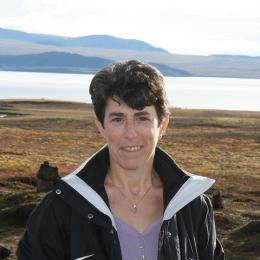
Ellen Kappel
Chair of the EAS Advisory Council and President, Geo Prose
Bio
Ellen Kappel, president of Geo Prose, received a Bachelor of Arts degree in geology from Cornell University (1980) and a PhD in marine geology and geophysics from the Lamont-Doherty Earth Observatory of Columbia University (1985). Ellen has been on more than a dozen research cruises in the Atlantic and Pacific Oceans to study mid-ocean ridge tectonics and assist in deploying deep-towed side-scan sonars and camera systems. After postdoctoral work, Ellen moved to Washington, D.C., as a program manager with the Ocean Drilling Program at Joint Oceanographic Institutions. She became passionate about program management, assisting the community to get the best science done and communicating the results to a broad audience. In 1999, Ellen established Geo Prose, where she works with community members in academia and government to produce compelling documents that make the case for funding major geoscience programs. Ellen is also editor of Oceanography magazine.
Purpose for joining the Advisory Council
As a member of the EAS Advisory Council, I hope to provide students with more opportunities to intern at environmental NGOs in Washington, D.C., and help EAS achieve a more diverse population in its undergraduate majors.
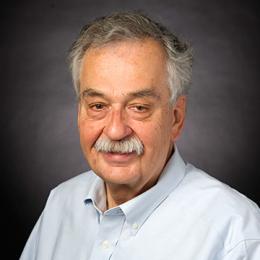
Kenneth Brink
Senior Scientist Emeritus, Woods Hole Oceanographic Institution
Bio
Graduated from Cornell in Engineering Physics in 1971 and obtained a PhD in physical oceanography from Yale in 1977. Spent 3 ½ years at Oregon State University before moving to the Woods Hole Oceanographic Institution in 1980. Study currents and water properties over the continental shelf, using both observational and theoretical approaches. Taught and advised graduate students as part of the MIT/Woods Hole Joint program. Served as Chair of the National Academies’ Ocean Studies Board, as president of The Oceanography Society and as editor of the Journal of Marine Research. Fellow of 4 scientific Societies and received the Cody Award in Ocean Sciences from Scripps Institution of Oceanography. Trustee of the Bermuda Institute of Ocean Sciences.
Purpose for joining the Advisory Council
My goal in serving on the EAS Council is to support the marine sciences at Cornell and their integration with the university’s broader scientific and educational community.
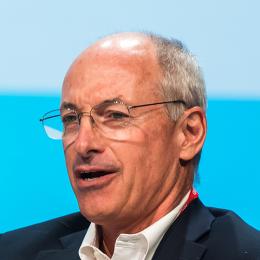
Richard Chuchla
Director of the Energy and Earth Sciences (EER) graduate program and Leslie Bowling Professor in Geological Sciences, Jackson School of Geosciences, University of Texas
Bio
Richard was born and raised in the shadow of The El Salvador porphyry copper deposit in Chile. He received his undergraduate degree in geology from Cornell and his Master’s from the University of Texas at Austin. He retired as an executive from ExxonMobil in 2015 after a 36-year career with the company. Richard has broad experience in minerals (base and precious metals), coal, oil and gas exploration, development, research and management, including a corporate assignment as upstream strategic advisor to ExxonMobil’s Corporate Management Committee and CEO. Richard has worked in basins and has participated in discoveries around the world. He was appointed as the Director of the Energy and Earth Sciences (EER) graduate program and Leslie Bowling Professor in Geological Sciences in 2016.
Purpose for joining the Advisory Council
In 2007, Terry Jordan and I got together to talk about the value to the department of external perspective. Cornell had historically enjoyed broad connections with other academic institutions, government agencies and industry. During the days of the COCORP project, industry connections were particularly strong but had since diminished. Our thinking was that one way to improve the understanding of the relevance of the EAS degree(s) was to have an advisory team, reporting to the department chair, which would provide candid feedback regarding the strategic direction of the department. I was the inaugural chair of the AC and among my many pleasures and honors in this role was having the former President of Cornell, Frank H.T. Rhodes, as a committee member!
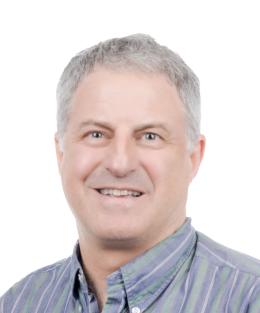
Trent Cladouhos
Vice President Geothermal Resource Development, Quaise Energy
Bio
I received my Ph.D. from Cornell in 1993 in structural geology, studying the neotectonics on the high Andean plateau of Argentina and Bolivia. After Cornell I moved to Seattle (where I have been since) for postdoctoral research at the University of Washington on the mechanical behavior of fault gouge from Death Valley, CA. Next, I worked as a consulting geologist at Golder Associates, where I created 3D discrete fracture network and fluid flow models for clients in the petroleum and nuclear waste isolation industries.
In 2008, I found my true calling in the geothermal industry when I joined a start-up, AltaRock Energy. AltaRock’s mission was to develop the technologies to enable geothermal energy production anywhere through engineered geothermal systems (EGS), a vision invigorated by Cornell’s Jefferson Tester in a 2008 DOE report. Since then, I have worked on EGS and conventional geothermal projects around the world with a focus on the western U.S. and on Newberry Volcano in Oregon in particular. My current company, Quaise Energy, is developing a gyrotron-powered drilling platform that will provide access to deep geothermal heat and enable EGS to be economically developed anywhere. We are currently targeting pilot projects at Newberry Volcano and central Nevada.
Purpose for joining the Advisory Council
I have continued to stay connected to Cornell through the geothermal program lead by Jeff Tester, including the plans to use direct geothermal heat on the campus. My goal is to help Cornell EAS adapt to the transition to renewable energy, especially geothermal.
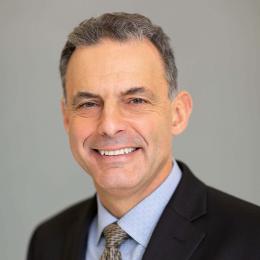
Edward Conti
Vice President / Principal Geologist, EKI Environment & Water, Inc.
Bio
Ed received his undergraduate degree in geology from Cornell's College of Arts & Sciences and his Master’s degree in geology from Duke. While at Cornell he participated in SEA Semester, an experience that influenced his graduate work in carbonate petrology and natural history. After graduate school, he worked for a short stint as a scientist and instructor aboard the SEA sailing research ships. He then embarked on his now over 30-year career in environmental geology with a focus on groundwater and surface water quality, including assessment of the fate and transport of chemicals in the environment and remediation. Ed has worked on projects throughout the United States, in Canada, and in Europe.
Purpose for Joining the Advisory Council
I joined the Advisory Council as a founding member with the goals of bringing the perspective of the environmental industry, a rapidly growing employer of earth and atmospheric scientists, and an emphasis on strong basic science education and field training to the department to support its efforts in preparing EAS students for the challenges and opportunities that lie ahead.

Adam Goss
Director of Global Access, BHP Petroleum
Bio
Born in a small factory town in central Massachusetts, I knew I wanted to be a geologist since the age of 4. My family are Italian immigrants who came to the US for the rocks – they were quarrymen from central Italy and loved breaking up granite as much as I. After undergraduate and a one year Watson Fellowship, I came to Cornell to work with Dr. Sue Kay on the crustal evolution of the Central Andes. Upon graduation, I headed to complete a post-doc at the University of Florida under Dr. Mike Perfit on mid-ocean ridge magmatism. By 2010, the economy had crashed so I was drawn to Houston, joining many EAS Cornell alums, to try my skills in the oil patch. After a few years at ExxonMobil, I joined BHP, the largest natural resource extraction company in the world, to work complex tectonic problems in Mexico, Philippines, Trinidad, and Canada. Currently, I am the Director of Global Access for the Exploration company. My job is to deliver new exploration opportunities to BHP through active bid exploration rounds, partnerships, government negotiations, and even corporate mergers. I am married to a lovely Cornell-trained veterinarian from Puerto Rico and have two children, Amelia and Joaquin.
Purpose for joining the Advisory Council
Through my involvement with the Cornell EAS Alumni Council, I hope to make a lasting contribution to the direction of the Department, in both curricula and research, to ensure Cornell remains a cutting-edge institution in training the next generation of globally-minded environmentally-focused geoscientists.

Thomas Hamill
Senior Scientist and Head of Innovation, The Weather Company
Bio
I am Head of Innovation with The Weather Company, an industry-leading producer of weather forecast guidance and products for consumers, for aviation and other business customers. As Head of Innovation, I am currently leading our company’s activities in deep learning applied to numerical weather prediction. Before joining TWC, I was a US government employee with NOAA for more than two decades, where I led research and development into methods for improving global ensemble-based weather predictions.
Purpose for joining the Advisory Council
As an advisory council member, I hope to help ensure that the atmospheric science part of the department continues to grow and attract more talented faculty and students, and to help the department meet the needs of current students. I am happy to be a resource for interested students and alumni.
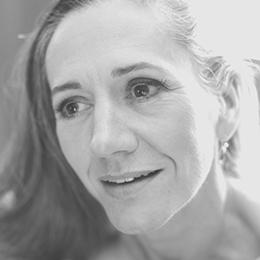
Ann Laubach
Bio
After earning my Bachelor of Arts degree in geology from Cornell (1981), I worked as an exploration geophysicist for Amoco Production Company. I subsequently shifted gears and earned an M.Sc. in economics from the London School of Economics (1988) and an MBA from the University of Chicago (1989) and spent five years working for McKinsey & Company where I served clients in a variety of industries, including energy, specialty chemicals, hospitality, and packaged foods. I eventually took a full-time position with Motorola where I worked on strategy for semiconductor and wireless divisions.
Since leaving the paid world of work to raise our two daughters, I have served in leadership roles for several non-profit organizations, including a term as vice president for development for Austin Opera.
I have also played an active role in organizing and participating in geology field trips around the globe that are the foundation for my husband’s fracture research at the University of Texas at Austin.
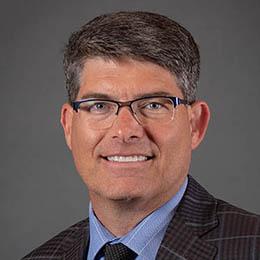
Gregory S. Poulos
CEO and Principal Atmospheric Scientist, ArcVera Renewables
Bio
Dr. Gregory Poulos is a co-founder of ArcVera Renewables, a global technical consulting firm created through the merger of V-Bar and Chinook Wind in March 2017. He joined V-Bar in 2009, became an owner in 2011 and eventually led its global solar and wind energy consulting practice. Previously, he led Clipper Windpower’s first wind resource assessment group where he oversaw wind resource analysis for 10,000 MW under development. From 1993 to 2007 he was an entrepreneurial company founder; scientific researcher; field experimentalist; and leader at Los Alamos National Laboratory and the National Center for Atmospheric Research.
Throughout his career, Dr. Poulos has focused on winds and atmospheric conditions near the surface of the earth and in complex terrain; high-resolution mesoscale modeling; large-eddy simulations; weather forecasting; and atmospheric observations using meteorological towers, sonic anemometers, sodar, 3-D lidar and profiling atmospheric radar. He has a peculiar knack for forecasting heavy snowstorms in the mountains, as a consequence of a recreational interest in mountain sports.
Dr. Poulos received his bachelor's degree in meteorology from Cornell University in 1989 before moving on to Colorado State University, where he received his M.S. (1992) and Ph.D. (1996) in atmospheric science.
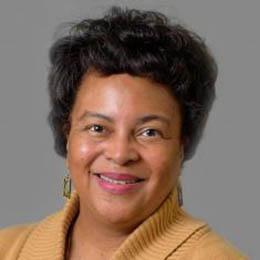
Sylvia Reeves
Northeast Drought Information Coordinator, National Integrated Drought Information System
Bio
Sylvia Reeves is the National Integrated Drought Information System's Northeast Drought Information Coordinator. She came to this position with NOAA in June of 2020 just as the northeast plunged into its third significant drought episode since the year 2000. Sylvia's undergraduate degree is in atmospheric sciences from Cornell University and her master’s degree is in science policy from North Carolina State University. For the Northeast Drought Early Warning System (DEWS) position, Sylvia returned to her old Cornell stomping grounds and is seated with the Northeast Region Climate Center (NRCC) team. Sylvia lives in Ithaca with her adult daughter and enjoys cooking, snowshoeing, sledding, movies and short hikes of the region's gorges while photographing the waterfalls and her dog, Riker.
Purpose for joining the Advisory Council
Since my early days at Cornell, I have felt a strong calling to focus on applied science and a multidisciplinary perspective to addressing weather related issues. In service to the council, the department and EAS students, it will be my privilege to share experiences from both the public and private sectors of the weather enterprise including the U.S. Air Force, private weather services providers and as an Emergency Management professional. Looking forward my goal will be to expand opportunities for all students in the sciences and in service to the public.

Alan Sealls
Adjunct Professor, University of South Alabama
Bio
Alan Sealls retired from a career in broadcast meteorology, having worked in Albany, GA., Milwaukee, WI., Chicago, IL., and in Mobile, AL. He most recently was Chief Meteorologist at WPMI-TV in Mobile. After earning a B.S. in meteorology from Cornell, he received a M.S. in meteorology from FSU. Alan is a Fellow of the American Meteorological Society, and a Past President of the National Weather Association. He is a sixteen-time regional Emmy winner who went viral on YouTube for his 2017 coverage of Hurricane Irma. Alan teaches a weather broadcasting course at the University of South Alabama; writes a weather column for Lagniappe Newspaper; and serves as a weather consultant and expert witness. Alan has authored three books and produced over 100 weather videos used domestically and internationally by k-12 educators.
Purpose for joining the Advisory Council
I look forward to serving the Council and students as a broadcaster/communicator voice of the private sector, while increasing the ethnic diversity resources of the Council, Cornell, and the student body.

Amit Tandon
Professor of Mechanical Engineering at the University of Massachusetts, Dartmouth
Bio
Dr. Amit Tandon is a Professor of Mechanical Engineering at the University of Massachusetts Dartmouth, with affiliations in the School of Marine Science and Technology and the Woods Hole Oceanographic Institution. He also collaborates internationally with the Geophysical Flows Lab at the Indian Institute of Technology Madras.
Dr. Tandon conducts research is in physical oceanography, particularly the study of mixing processes in the upper ocean, by ocean eddies and fronts. He leverages his combined knowledge of fluid mechanics and oceanography to tackle critical questions about how the ocean mixes and its impact on global circulation and climate. Dr. Tandon has employed a multifaceted approach in his career, utilizing analytical and numerical modeling alongside observational data to understand the intricacies of the upper ocean.
Dr. Tandon has served as the USA lead for the ongoing India-US Arabian Sea Boundary Layer program and previously held leadership roles in programs exploring the Bay of Bengal's influence on South Asian Monsoons. Through these efforts, Dr. Tandon fosters international collaboration to advance our understanding of the ocean's complex dynamics.
Dr. Tandon received his Bachelors in Mechanical Engineering (1987) at the Indian Institute of Technology Kanpur India, and before obtaining his Masters (1990) and PhD (1992) in Mechanical Engineering from Cornell.
Purpose for joining the Advisory Council:
I would like Cornell students to be exposed to topics in tropical air-sea coupled phenomenon, and more broadly examining the ocean’s role in climate. I would like them to consider consider careers in related fields.
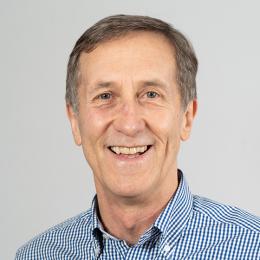
John Thompson
PetraScience Consultants Inc.; Adjunct Professor, Earth and Atmospheric Sciences, Cornell University
Bio
Since 2012, John has partnered in a consulting business based in Vancouver, BC, focused on exploration, mining and sustainability. From 2013-18 he was also the Wold Professor of Environmental Balance for Human Sustainability at Cornell University. John has over 35 years working in the mining industry and related research, and has held diverse leadership roles in many organizations – Teck Resources, Genome BC, the World Economic Forum, Resources for Future Generations 2018, Society of Economic Geologists, Geoscience BC, Canada Mining Innovation Council, and MDRU-UBC. He is a director and advisory board member for several exploration, technology, and venture capital companies, and not-for-profit organizations focused on resources and sustainability.
Purpose for joining the Advisory Council
I hope to help the Department grow in reputation through high quality research in key focus areas, excellence in graduate and undergraduate education, engagement with key sectors that seek earth science data, ideas and employees, and broader public outreach that advances the understanding and value of earth science
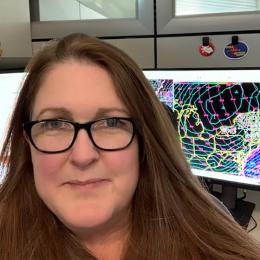
Jeane Wallace
Northeast River Forecast Center (NERFC), NOAA
Bio
Jeane Wallace is a Senior Hydrologist at the Northeast River Forecast Center (NERFC), part of NOAA’s National Weather Service, where she serves as a hydrologic forecaster as well as the leader of the Hydrologic Modeling Team. Her primary focus outside of operational river forecasting is the hydrologic modeling of watersheds in New England and New York. She is also part of the team instrumental in implementing the Community Hydrologic Prediction Service (CHPS) at NERFC in 2011, which dramatically transformed the way river forecasts are produced. Prior to coming to NERFC in 2001, she was a hydrologist at the Middle Atlantic River Forecast Center in State College, PA and a Meteorologist Intern in Norman, OK. During the summer of 1991, she was a summer intern at the National Hurricane Center, then in Coral Gables, FL.
Purpose for joining the Advisory Council
I believe I will bring a unique perspective to the Council, as I come with many years of experience in the public sector of the U.S. Weather Enterprise.
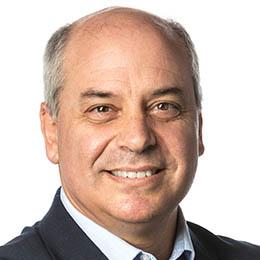
Tomás Zapata
Vice President Exploration Americas Assets, Repsol E&P USA Corp.
Bio
Tomás Zapata has a geology degree from Buenos Aires University, Argentina, where he worked as Assistant Professor from 2001 to 2011. He holds a Ph.D from Cornell University in structural geology and tectonics.
Since 1996, he has conducted exploration activities working at Repsol, occupying different technical and managerial positions, throughout Latin America basins. He has focused his exploration studies on the Andean fold and thrust belt, where he participated on several oil and deep gas discoveries in the Austral, San Jorge and Neuquen Basin of Argentina, and the SubAndean basin of Bolivia, Perú and Colombia, and recently in Alaska and offshore Gulf of México and México.
Dr. Zapata worked as a structural geology specialist for the exploration study teams and published more than 40 papers on structural geology and tectonics of the Andes. He has occupied various managerial positions as well as executive ones such as Director of International Exploration, Director of Geology, and Director of Exploration Operations. He is currently working as Director of Americas Exploration Assets, managing the Exploration and Low Carbon Project Business for Bolivia, Perú, Colombia, Guyana, Brazil, México and the U.S.
Purpose for joining the Advisory Council
I believe my contribution to the Advisory Council would be to provide my views about how the engineering and geoscientists career needs to be adapted to the energy transition requirements.

